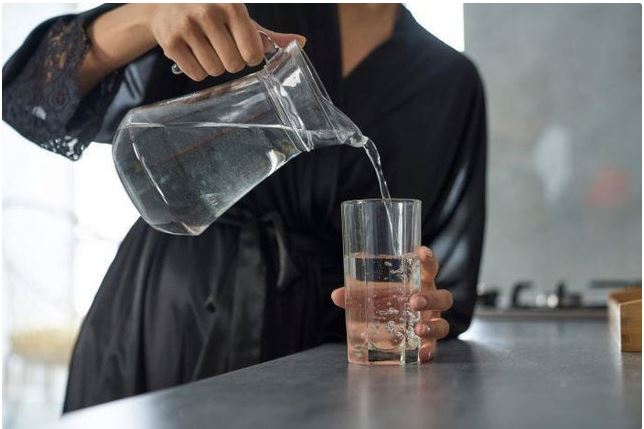Maintaining adequate hydration is essential for good health. However, as with anything in life, balance is key. Drinking too much water, also known as water intoxication or hyponatremia, can have serious health consequences. In this article, we will delve into the key signs that suggest you might be drinking more water than your body needs, the underlying causes, and how to properly balance hydration for optimal health.
What Happens When You Drink Too Much Water?
Drinking excessive amounts of water can overwhelm your kidneys’ ability to filter and eliminate the excess. This can lead to dilution of sodium in the bloodstream, which disrupts the normal functioning of cells, nerves, and muscles. The condition, hyponatremia, can manifest with a variety of symptoms ranging from mild to severe.
While water is essential to life, drinking excessive amounts can pose risks, leading to complications such as brain swelling, seizures, and in extreme cases, death. It is important to recognize when you’re over-hydrating to avoid potential harm.
Signs and Symptoms of Drinking Too Much Water

1. Persistent and Severe Headaches
One of the earliest signs that you may be drinking too much water is a persistent headache. When you consume more water than your kidneys can process, the blood becomes diluted, and sodium levels drop. This change in electrolyte balance can lead to a painful headache that doesn’t seem to go away.
If you experience regular headaches, especially after drinking large amounts of water, it’s a clear signal that you might need to adjust your fluid intake. Be mindful of the frequency and intensity of these headaches.
2. Frequent Urination, Especially at Night
Excessive water intake leads to frequent urination, a condition known as polyuria. If you find yourself running to the bathroom multiple times during the day or waking up several times at night to urinate, it’s likely that your water consumption is too high.
This is your body’s way of trying to rid itself of the excess fluid. Nocturia, or waking up frequently during the night to urinate, is particularly troublesome as it disrupts your sleep, leaving you feeling fatigued the next day.
3. Swelling in Hands, Feet, and Lips
Swelling or edema in the hands, feet, or lips can also be a sign of water retention due to overhydration. When there is too much water in the body, it starts to accumulate in the tissues, leading to swelling. This can make your skin feel tight and uncomfortable.
If you notice any unexplained swelling, particularly in the extremities, it’s important to assess how much water you’re drinking and whether it might be contributing to the issue.
4. Nausea, Vomiting, and Bloating
Excessive water intake can cause nausea, vomiting, and bloating, which are common symptoms of water intoxication. As your body struggles to process the excess water, it may begin to feel bloated and uncomfortable. In some cases, this can escalate to vomiting, which worsens the fluid imbalance in the body.
If you’re feeling nauseous or bloated after drinking water, your body is likely trying to signal that you’ve reached your hydration limits.
5. Muscle Weakness and Cramps
Another symptom of overhydration is muscle weakness and cramps. Sodium, an essential electrolyte, plays a crucial role in muscle function. When your sodium levels drop due to excessive water intake, it can lead to muscle weakness and painful muscle cramps.
This is a particularly alarming symptom that should not be ignored. Muscle cramps may start in the legs or arms and, if left unchecked, could escalate to more serious issues like seizures.
6. Mental Confusion and Disorientation
In extreme cases, drinking too much water can cause mental confusion, disorientation, and even hallucinations. This occurs when the brain’s cells begin to swell due to water retention. The swelling can cause increased pressure within the skull, affecting brain function.
If you feel confused, disoriented, or unable to focus after drinking large amounts of water, it is critical to seek medical attention immediately.
7. Difficulty Breathing or Shortness of Breath
In rare cases, overhydration can lead to difficulty breathing or shortness of breath. As the body struggles to manage the excess fluid, it can impair lung function, making it harder for oxygen to circulate properly. This can be accompanied by a feeling of tightness in the chest.
If you experience these symptoms, it is vital to stop consuming water immediately and seek urgent medical care.
How Much Water Should You Be Drinking?
The amount of water a person needs varies depending on a variety of factors, such as age, gender, activity level, and climate. The common advice of eight 8-ounce glasses of water per day (about 2 liters or half a gallon) is a general guideline, but some individuals may need more or less than this amount.
It is important to remember that hydration needs are not one-size-fits-all. Thirst is a reliable indicator of when your body needs water, and drinking when thirsty helps maintain a healthy balance. Overriding your body’s natural thirst signals by drinking excessively can lead to negative consequences.
The Risks of Overhydration
While dehydration is commonly recognized as a health risk, overhydration can also be harmful. Drinking excessive amounts of water in a short period can cause the kidneys to become overwhelmed, leading to water retention and dilutional hyponatremia.
Some people may be more at risk for overhydration, including those who engage in excessive physical activity, athletes who drink large amounts of water, and individuals who may have kidney issues or other health concerns.
How to Maintain Proper Hydration
To maintain proper hydration without overdoing it, it is essential to follow these guidelines:
1. Drink According to Thirst
The simplest way to avoid overhydration is to listen to your body’s thirst signals. Drink when you are thirsty, and stop when you feel satisfied. Don’t force yourself to drink more water than your body needs.
2. Pay Attention to Urine Color
Your urine color can be an excellent indicator of your hydration status. Clear or light yellow urine generally indicates proper hydration, while dark yellow or amber-colored urine suggests you may need to drink more water. If your urine is consistently clear and you’re feeling bloated or urinating excessively, consider reducing your water intake.
3. Balance Electrolytes with Water
If you are engaging in strenuous activity or exercise, it’s important to balance water intake with electrolyte-rich fluids such as sports drinks. These drinks help replenish sodium, potassium, and other essential minerals lost through sweat, which can help prevent hyponatremia.
4. Avoid Over-Drinking Before Sleep
To prevent waking up multiple times during the night to urinate, try to avoid drinking large amounts of water just before bedtime. Drink enough fluids throughout the day to stay hydrated but reduce consumption in the evening.
5. Seek Medical Advice if Unsure
If you are concerned about your water intake or are experiencing any of the symptoms mentioned, seek medical advice. A healthcare provider can help assess your hydration levels and recommend an appropriate amount of water for your individual needs.
Conclusion
Water is crucial for maintaining good health, but just as it’s possible to suffer from dehydration, overhydration can also pose serious risks. Recognizing the signs of excessive water consumption and adjusting your intake accordingly can help ensure your body remains in balance. Remember to drink according to thirst, monitor your urine color, and balance your electrolytes to stay properly hydrated.
By following these simple guidelines and paying attention to your body’s cues, you can maintain optimal hydration without risking the dangerous effects of drinking too much water.









